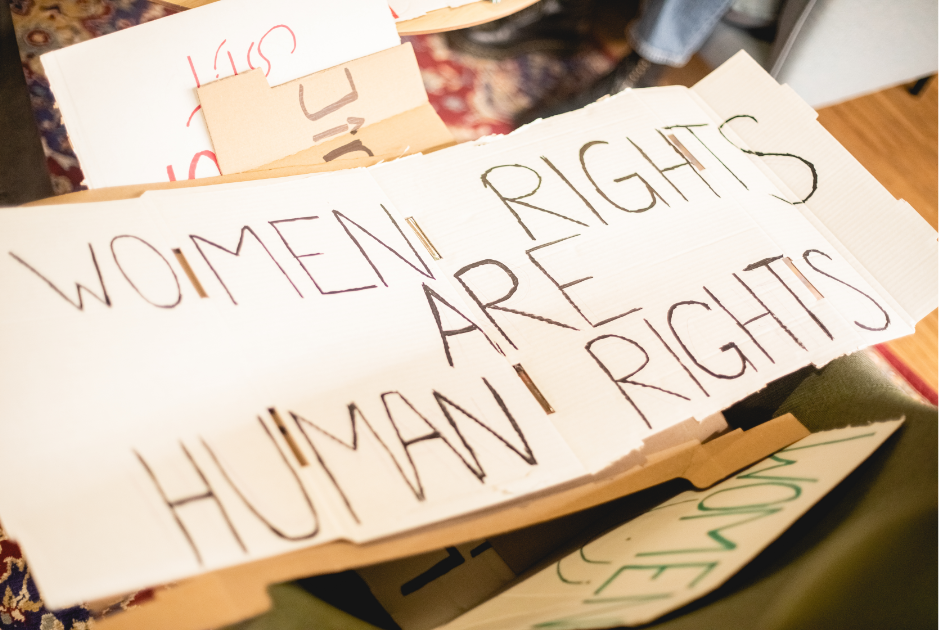What trends are accepted now but will be embarrassing in the future? Our readers shared 21 ideas.
Today's trend is tomorrow's cringe.
What's accepted now but will be embarrassing in the future?
We can all be sure that as society evolves, many things that seem normal today will be cringeworthy to people in the future, whether it’s our fashion, politics, civility, or our treatment of the environment.
If we look back just 30 years ago, same-sex marriage was illegal, people routinely smoked in bars and restaurants, and it was fashionable and cool to vogue.
So, when we look back on the world of 2024, there are bound to be many things that we’ll be embarrassed about in 30 years, especially when we are forced to live with the repercussions of the decisions we make today. On a lighter note, we’ll all also have clouds full of photos of ourselves wearing hairstyles and clothes that look utterly ridiculous in hindsight.
Last summer we asked the Upworthy community to share their thoughts by asking a big question on Facebook: "What's something that's accepted now that we'll be embarrassed about in the future?" Our readers responded with funny takes on current fashion and concerns about technology use and how we treat our fellow human beings.
Here are 21 things we accept today that we’ll probably be embarrassed about in the future.
More than a few current fashion trends will look silly in the coming years.

"Yoga pants. I love them to death, but I can easily see them as the parachute pants of tomorrow." — Deborah
"Barn doors in your house." — Joyce
"Tattoos all over the body." — Vicki
"People wearing socks and sandals." — Jeremy
"Wearing pajamas in public." — Ivy
"Huge, over-sized false eyelashes." — Patricia

Hopefully, people in the future will be more considerate when using technology than we are today.
"Walking around with your eyes locked on your phone. Or eating at a table with 4 people looking at their phone. One day, we will either fall off a cliff or realize life is what is happening off the screen." — Elise.
"Texting in the presence of another person." — Kate
We can also hope that in the near future, we will be able to solve many of today’s pressing public policy issues so that the next generation will live happier and healthier lives.
"Lack of healthcare for everyone." — Sharon
"Making the planet unlivable for human beings." — Karen
"Spending hundreds of millions of dollars of taxpayer's money to build a sports arena for a billionaire. Then charging the taxpayers outrageous amounts to attend events there." — Stacy
"How the US is systematically clawing back women's rights to decide what they do with their bodies. It's beyond shameful." — Jason.

"Allowing guns everywhere." — Amy
"That we drive fossil fuel-powered vehicles." — Heidi
Some people are concerned about the way students and their parents behave in modern-day America.
"Parents trying to run schools: yelling at teachers for their child’s poor performance, yelling at principals when their child gets in trouble, book banning based on an individual’s religious ideologies, etc." — Beth.
"Entitled children talking back to their parents and teachers." — Connie
@theclassiiics Every generation has different types of teachers 🤷🏾♂️🤷🏽♀️🤣🤣🤣 #comedy #comedyvideos #funnyvideos #classiiic @summerrrwilliams #fyp #teacher #teacher #genz #genx #millennial
"Cry rooms at universities where students can go and work out their anxiety and cry and be upset if their professor uses words that are too difficult for them. Universities are institutes of higher learning, not institutes of babysitting. That will be an embarrassment in the future, as it is an embarrassment to me and many others now." — Della
In 30 years, we may be embarrassed to look back on the level of general civility in 2024.
"Panic buying of toilet paper during the pandemic." — Tony
"Ageism. It’s everywhere, all the time, and no one seems to mind. No one is defined by the amount of time they’ve spent on the planet but it’s used as an identity and as a weapon (ask any teenager, 40-year-old woman, or retiree…). I can only hope that one day it will be a source of embarrassment that we were all so dismissive and judgmental." — Rosy.
"Human beings living on the street." — Andrea
"Torturous killing of animals for food." — Mae

While this list may seem like a litany of complaints people have about living in the modern world, it should give people hope. If we’ve overcome past embarrassments, today’s can be fixed as well.
This article originally appeared last year. It has been updated.

